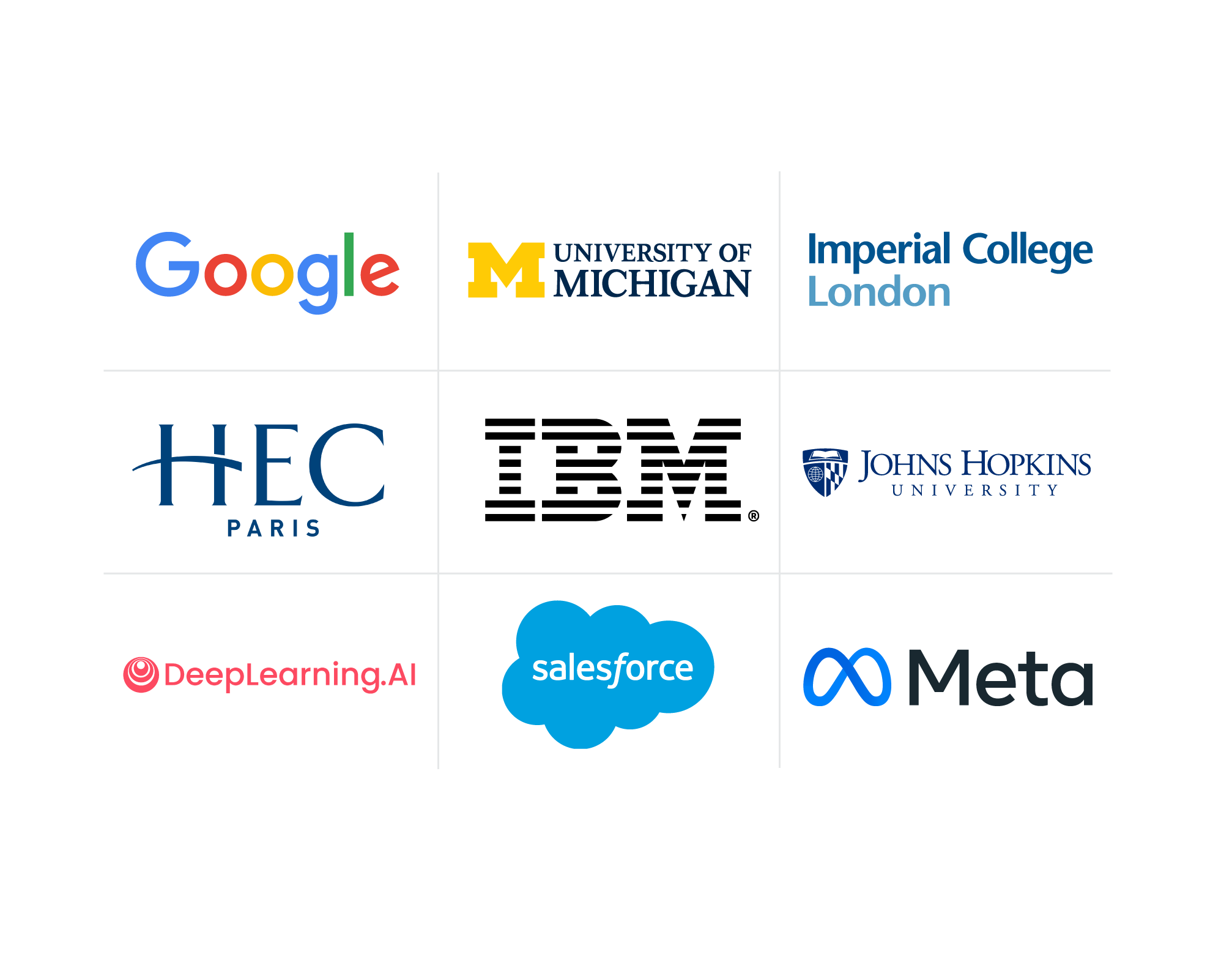The Importance of Skill Development and Where to Start
Like earning a degree or gaining work experience, skill development can be an important part of landing your dream job. Ready to improve? Start here.
![[Featured image] Man and woman at the computer working on developing a new skill](https://d3njjcbhbojbot.cloudfront.net/api/utilities/v1/imageproxy/https://images.ctfassets.net/2pudprfttvy6/1b6kyrTr0T0oQC5Ja2YHOm/25980f5fb7b34c921567820f3e34fe4c/Stocksy_txpe0666ad4RLr200_Large_2772942.jpg?w=1500&h=680&q=60&fit=fill&f=faces&fm=jpg&fl=progressive&auto=format%2Ccompress&dpr=1&w=1000)
When you begin working toward a new job or career, you tend to focus on ensuring you have the proper education and work experience to make hiring managers take notice. Equally important is developing essential skills, particularly workplace or human skills.
Many surveys and studies have shown that these skills are a top priority for employers during the 2020s. For example, a learning and development study from LinkedIn states that 64 percent of learning and development professionals plan to reskill their current employees—the process of learning new skills for a new job [1].
Skills development is essential to training yourself for a career and personal development. Learning how to showcase them on your resume can set you above the other candidates. Here’s what you need to know about skill development, how to start developing your skills, and how to list them on your resume.
What is skill development?
Skill development is the process of improving specific skills to be more efficient and effective when you perform a task. In the workplace, you’ll find three main types of skill development:
Upskilling: Improving your skills in your current role
Cross-skilling: Learn new skills for your current role
Reskilling: Learning new skills so you can move to a new role
However, you don't have to be part of a workplace program to develop your skills further. You might be a college learner working towards a degree, unhappy with your current job, wanting to apply to a new company, or desiring a promotion. You can also develop your skills for personal reasons, such as improving your confidence or improving a hobby you enjoy.
Steps to beginning your skills development
You can take these steps to get started no matter why you're working on skills development.
1. Think about your goals.
First, establish a goal. Why do you want to enhance a particular skill? This can be for a job, a volunteer opportunity, a hobby, for your education, to improve your confidence, or to win an award—there are countless potential reasons.
Let's say you have a goal of becoming a journalist. Once you have that, you can determine where you need improvement.
Read more: What Are Your Career Goals? Tips for Setting Your Goals
2. Identify your skills gap.
You’ve established a goal. Now, you need to think about what you require to reach it. Several skills are necessary to become a journalist. Let's say you have most of them, but your social media skills need to improve. That is an in-demand skill for modern journalists, so you'll want to develop your social media expertise before applying for jobs.

3. Target specific skill areas.
Skills can be divided into dozens of categories. When discussing a career, you can divide them into human skills (sometimes called soft skills or personal skills) and technical skills (sometimes called hard skills).
Human skills
You use human skills at work to interact with others and solve problems independently. Some may come naturally to you, and some may require development. Some common human skills include:
Communication
Time management
Adaptability
Creativity
Critical thinking
Time management
Teamwork
These skills can be challenging to showcase on a resume because you usually prove them through actions and interactions. They can be subjective, and they're not easy to quantify.
Technical skills
On the other hand, technical skills, or hard skills, are those you can quantify. For example, if you're a great typist, you can prove that by typing 70 words per minute. If you're great at social media, you can show the accounts you run with many followers and heavy engagement. If you've mastered Microsoft Office, you can present the certificate you earned.

4. Expand your network
One way to start skill development is to see how others do it. Start by expanding your network to people who are great at social media. If you're a college learner, you could contact a digital marketing company to see if they'd allow you to meet with one of their social media experts. You can browse social media and reach out to a journalist with a strong understanding of the platform. You can even approach a friend or family member who is excellent at social media. Ask them to teach you what they know. Not only will this help you build your social media skills, but it'll help you improve human skills, like communication and active listening.
5. Get a coach
If you need more time to be ready to reach out to someone at random, consider searching for someone who coaches people in these skills professionally. This may be more expensive, but remember that it may help your bottom line in the long run.
6. Read and research
Because social media is such a huge part of modern life, there is plenty to read about, both in print and online. Reading and learning as much as possible about any skill you want to improve can help you better understand it. Consider educational videos and podcasts too. Immerse yourself in high-quality information that relates to the skill.
7. Take courses and undergo training.
Consider signing up for a class on the topic. For example, visit a site like Coursera. You'll find several online classes to improve your social media skills, such as How to Increase Engagement to Your Instagram Business Profile or How to Optimize Your Instagram Account, both offered by the Coursera Project Network.
8. Seek certification
While there won't be certifications for every skill, you can find them for some of the most current in-demand skills. Regarding social media skills, you'll find that reputable companies like Hootsuite and X Flight School offer certifications you can list on your resume upon completion.
Read more: Are Certifications Worth It? When to Get Certified in Your IT Career
9. Practice
The more you practice a skill, the more you'll get the hang of it. Open up that Instagram or Twitter account and get to work. Apply the skills you learned from your network, coach, or online courses. Practice daily with your personal account. While you practice, pay attention to feedback, no matter its source. Your coach or mentor may have tips to help you improve your work. In the case of social media, a lack of engagement or criticism from your followers may be a form of feedback. You can even ask a friend to look at your account and tell you what they think.
How to highlight your skills on your resume
Once you have a good command of any skill, you'll want to add it to your resume. To do this, simply create a section called “Skills.” Make two separate lists—one of your human skills and one of your technical skills. Then, list the skills that are your strongest and most relevant to the job to which you’re applying.
When you’re called in for an interview, your interviewer will likely address this section of your resume. For technical skills, they might want concrete proof of what you've listed. If you mention you have strong social media skills, they might ask to see your personal account. If you claim you have taken an online course in social media optimization, they may want to see the diploma or certificate.
It’s harder to demonstrate your human skills. In this case, the interviewer might ask about a time when you used these skills at work or school to solve a problem. Be sure to come up with some good examples before your interview and practice telling someone about them.
Next steps
If you’re interested in skills development for your career, consider taking an online course that can help. On Coursera, you’ll find several options for general self-improvement and specific human and technical skills offered by some of the world's top businesses and educational organizations.
Consider Professional Development: Improve Yourself offered by Macquarie University and The Arts and Science of Relationships: Understanding Human Needs offered by the University of Toronto.
Article sources
Linkedin. "Leading with Learning: Insights and Advice About the New State of L&D" Accessed September 27, 2023.
This content has been made available for informational purposes only. Learners are advised to conduct additional research to ensure that courses and other credentials pursued meet their personal, professional, and financial goals.

